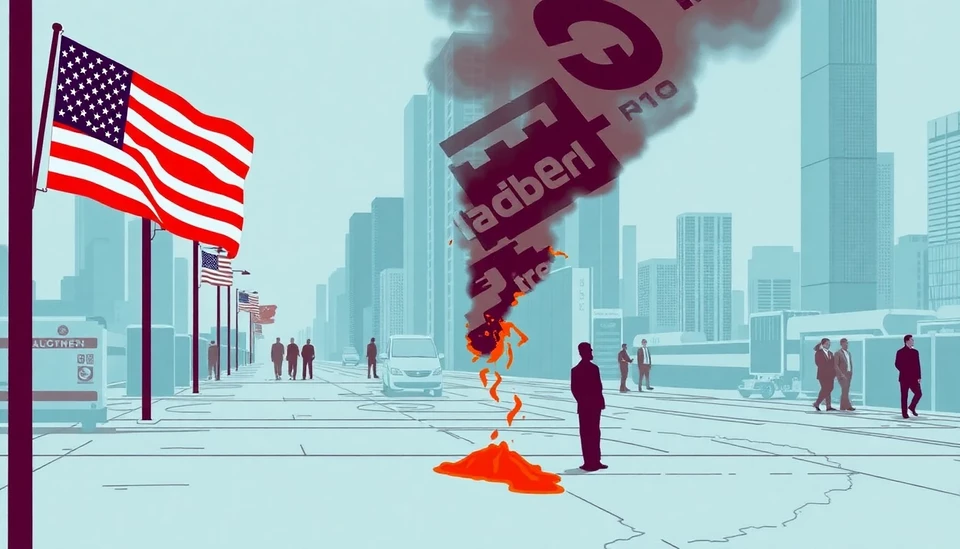
The ongoing trade war between the United States and its trading partners, particularly China, has sparked mounting concerns over its potential ramifications on the global economy. Analysts warn that the escalation of tariffs and restrictions could lead to a scenario reminiscent of previous financial crises, as the economic fabric of these nations becomes increasingly interwoven.
Recent reports indicate that the trade conflict is evolving beyond simple tariff disputes. It is now a multifaceted dilemma involving technology transfer issues, sanctions, and geopolitical tensions. As this war intensifies, there exists a pressing risk of economic destabilization not only domestically but also in international markets.
Experts have highlighted several key factors that could ignite a financial crisis. The first is the imposition of comprehensive tariffs on a broader range of goods. As companies face higher costs, they may pass on expenses to consumers, leading to inflationary pressures. If inflation rises significantly, the Federal Reserve may be compelled to increase interest rates to stabilize the economy, which could, in turn, slow economic growth and trigger a recession.
Additionally, the uncertainty surrounding trade policies has deterred investment in key sectors, ranging from manufacturing to technology. Companies may choose to delay capital expenditures or relocate operations abroad to mitigate losses, leading to job losses and decreased consumer spending. This could create a vicious cycle, exacerbating economic instability.
Moreover, supply chain disruptions pose a significant risk. Many industries have become overly reliant on global supply networks. Should tariffs escalate further, companies might face operational hurdles that lead to production delays and increased costs. These setbacks could force firms to downsize or even file for bankruptcy, resulting in job losses and further contributing to economic downturns.
The escalation of the trade war has also sparked anxiety among investors, leading to increased market volatility. Stock prices have fluctuated wildly in response to trade developments, with many market participants fearing that prolonged uncertainty could translate into a significant market correction. This sentiment echoes the fears seen during past financial crises when trader panic exacerbated downturns.
Finally, the ramifications of a protracted trade dispute extend beyond the immediate economic indicators. The social and political implications cannot be ignored. Discontent among the electorate may rise as job losses mount and cost of living increases, potentially leading to political unrest. Governments may find themselves pressured to take drastic measures, further complicating the trade situation and risking an economic collapse.
As the U.S. pushes forward in its trade negotiations, stakeholders must remain vigilant. The multifaceted nature of the trade war demands a concerted effort to address not only trade imbalances but also the looming threats to financial stability. Both policymakers and the business community must engage in proactive dialogue to mitigate risks, create contingency plans, and restore investor confidence in a challenging economic landscape.
In conclusion, while the trade war has undoubtedly created a divide between the U.S. and its trading partners, it is essential to acknowledge its potential to incite broader economic challenges. By focusing on constructive solutions and prioritizing economic stability, stakeholders can work towards navigating through these turbulent waters together.
#TradeWar #FinancialCrisis #Economy #GlobalTrade #USChinaRelations #Tariffs #Investment #MarketVolatility
Author: Daniel Foster




